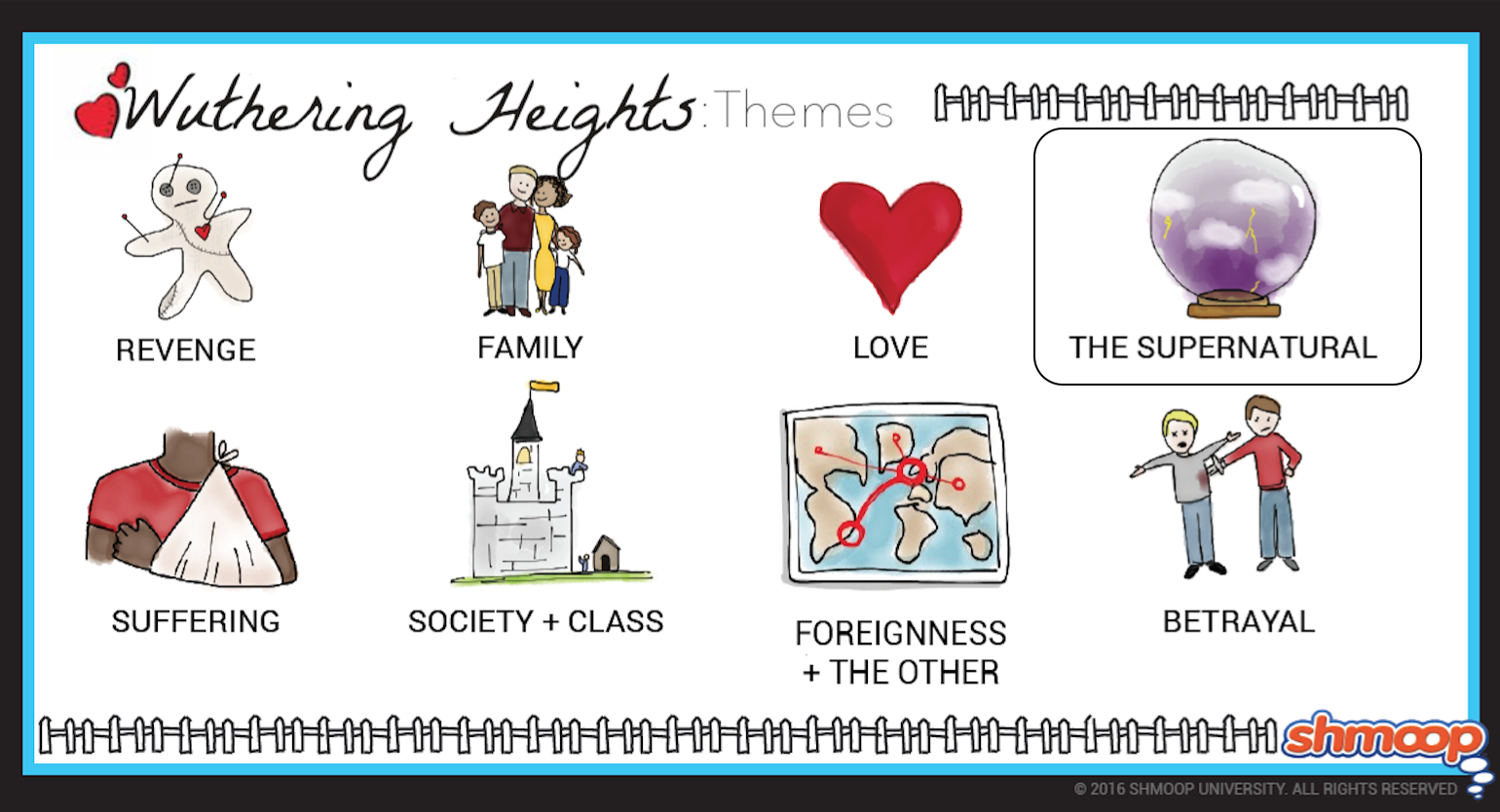 (Click the themes infographic to download.)
(Click the themes infographic to download.)
From beginning to end, there's no avoiding the supernatural in Wuthering Heights. There are probably more ghosts than there are humans in this neck of the moors.
When the ghost of Catherine Linton attempts to come into Wuthering Heights through the window, Lockwood's fascination is piqued. The moors, the people, and Wuthering Heights itself are all infused with supernatural elements—we have much more than your conventional haunted house. As a child, Heathcliff is teased by others for being a dark and unnatural representative of the supernatural (e.g., an "imp of Satan"). And late in the novel, Nelly wonders whether he is a ghoul or a vampire.
The supernatural vibe extends far beyond Heathcliff to the moors and surrounding village, all of which seems to be touched by something sinister. And the book ends with the suggestion that Heathcliff and Catherine will haunt the moors together for ever after.
Questions About The Supernatural
- Are we meant to believe that ghosts truly exist in the novel?
- How many ways are there to interpret the ending of the novel?
- What does Lockwood's dream of a ghostly Catherine tell us about his character?
Chew on This
With Wuthering Heights, Brontë complicates the Gothic novel genre, making Heathcliff much more than a one-dimensional villain.